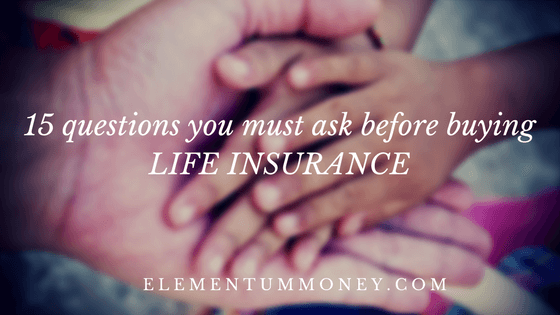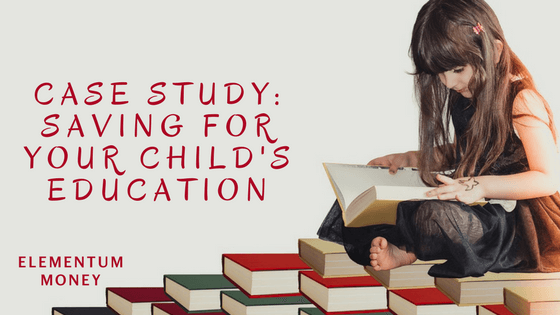
In the last post in our series on life insurance, I am hoping that I have convinced you of the need to have life insurance under your name, in case of financial dependents. Now, that you are ready to take the final step to signing on the dotted line of buying a life insurance policy, read these 15 questions that you must ask yourself or your life insurance company.
QUESTIONS TO BE ASKED IN THE PRE-PURCHASE PHASE

You need to do your homework before you embark on mission Life Insurance
- What type of life insurance policy should I buy? – This is a basic question you would need to answer before starting the process to buy a life insurance policy. There are 5 major types of life insurance policies in India. The most rational and value for money purchase remains a term life insurance. At the risk of repeating myself, let me reiterate – life insurance is the process of managing the risk of not being able to financially provide for your family in case of untimely demise. Life Insurance is NOT an investment.
- What amount of life insurance cover do I need? – While there are simple ways like 10 times your annual salary, it is not customized to your needs or financial aspirations. There are other more scientific ways to calculate the appropriate amount of life insurance. You can read all about it and download calculators to quickly determine your number, right here.
- How long a term do I need on my life insurance policy? – To me, this is a no brainer. The purpose of insurance is to provide for an alternate in your earning years, in case of untimely demise. With appropriate financial planning, it is taken as a given that you would have achieved most (if not all) of your financial goals as well as built up a healthy retirement corpus. In your post-retirement years then, life insurance is practically redundant.
- Who will be the Nominee/Beneficiary for my life insurance policy? – This is one of the most important decisions in your life insurance purchase journey. You might have multiple financial dependents, but the onus is on you to zero in on the one responsible decision-maker who will be able to do justice to the insurance corpus. For instance, your mother and your child are the two people financially dependent on you, you can still choose your wife to be the nominee for the policy, with the logic that the policy money will be best utilized by her as the care taker for the 2 family members. Also, be sure to review the details at regular intervals (2-4 years)
- Do I need riders on my life insurance policy? – A term insurance is a plain vanilla product that can be beefed up by opting and paying for chosen riders like critical illness rider or disability rider. These riders are there as an option to provide added protection at lower cost (than buying a separate policy with the same purpose). Read about some of the most common term insurance riders here.
QUESTIONS TO BE ASKED IN THE PURCHASE PHASE

Buying life insurance is not as easy as buying a macaroon – it is a long-term, expensive purchase. You must check different providers and be satisfied on multiple parameters before you decide
- Should I compare life insurance policies provided by different companies? – We Indians generally check with multiple sellers before any big purchase. We also haggle and negotiate to ensure we get the best value for our money. Make sure life insurance is no different. Today, online providers have made it quite convenient to do that which leaves us with no excuse to not research.
- Does claim payout ratio matter? – If in a year company X receives 100 claims from its’ policy holders and it rejects 4 of them while paying out the remaining 96, then company X’s claim payout ratio for that year would be 96{76b947d7ef5b3424fa3b69da76ad2c33c34408872c6cc7893e56cc055d3cd886}. While claim payout ratio cannot be the only determinant of the life insurance provider, it is an important one. Personally, I think anything above 90-92{76b947d7ef5b3424fa3b69da76ad2c33c34408872c6cc7893e56cc055d3cd886} is a green signal while anything below 90{76b947d7ef5b3424fa3b69da76ad2c33c34408872c6cc7893e56cc055d3cd886} definitely warrants caution. A ready point of comparison is this page on policy bazaar.
- What premium amount should I pay? – Most of us Indians are paying outrageous premium amounts thanks to the rampant mis-selling and the unreal attraction of insurance investment products. However, most term insurance policies come at a fairly reasonable cost, almost as much as a fine dining meal every month. In case circumstances still do not permit a premium for the appropriate term insurance cover and you do have financial dependents, take a slightly lower life insurance cover and step it up with your next increment, without fail.
- What frequency of premium payment should I opt for? – Most life insurance providers have an option of the premium to be paid either as an annual lumpsum or monthly (in 12 equal installments every year). In my experience, the monthly installment is a better option as the hit feels much lesser. In fact, I know a friend who let his policy lapse because the hit of an annual premium felt much higher.
- Can the cover amount be increased? – This is an important question to ask because as we progress in life, our needs increase which correlate into the requirement for a higher life insurance policy amount. Also, when you factor in inflation, you should always factor in an option to increase the cover amount.
- Are medical tests required? – There are some fancy new policies in the market that advertise the fact about not needing a health-check up (otherwise a standard process) before getting a life insurance policy. Only if you have something to hide, can you be scared of a medical test. If someone is willing to pay up in case something fatal occurs to you, they have a right to know what they are signing up for. It is easy to prove a pre-existing condition and refuse to pay the claim in the absence of this health check report.
QUESTIONS TO BE ASKED IN THE POST-PURCHASE PHASE

Even after finalising the policy and the company, make sure to read the fine print in the policy document and check for a few essentials before you sign the dotted line
- What are the renewal terms? – Reading the fine line on an insurance policy is extremely important. You need to know whether the company is charging a uniform amount or is there an escalation in the premium amount at any point in the term. Also, you need to check whether your insurance continues automatically every year or if there are any conditions around it.
- What are the exceptions? – Most policies mention circumstances in which the policy becomes null and void, suicide in the first year of the policy being a standard exception. Some policies even mention critical illnesses like cancer. It is important to be aware of these exceptions, and contest them if necessary, before signing on the dotted line.
- What is the grace period? – This is a defined period of time, post the date due for the annual premium payment, for which the policy remains active. Only if the premium is not paid even during this grace period, does the policy lapse. You should check for the grace period mentioned in the policy and negotiate for as long a period as you can get.
- What is the claim process? – Under the unfortunate situation that your family does need to use the insurance policy, you don’t want them running pillar to post in that emotionally draining period. Check that the policy document clearly mentions the claim process and if need be make your nominee aware of it as well.
Once you understand life insurance better, you will realize that it is essential but not complicated when you are able to cut through the fluff around it. I hope this series has managed to do some part of that job for you.
In case of any questions or opinions, you know what to do – comment below or email me at aparna@elementummoney.com
Other posts in the #LIMonday Series:
Why do you need Life Insurance





Leave a Reply